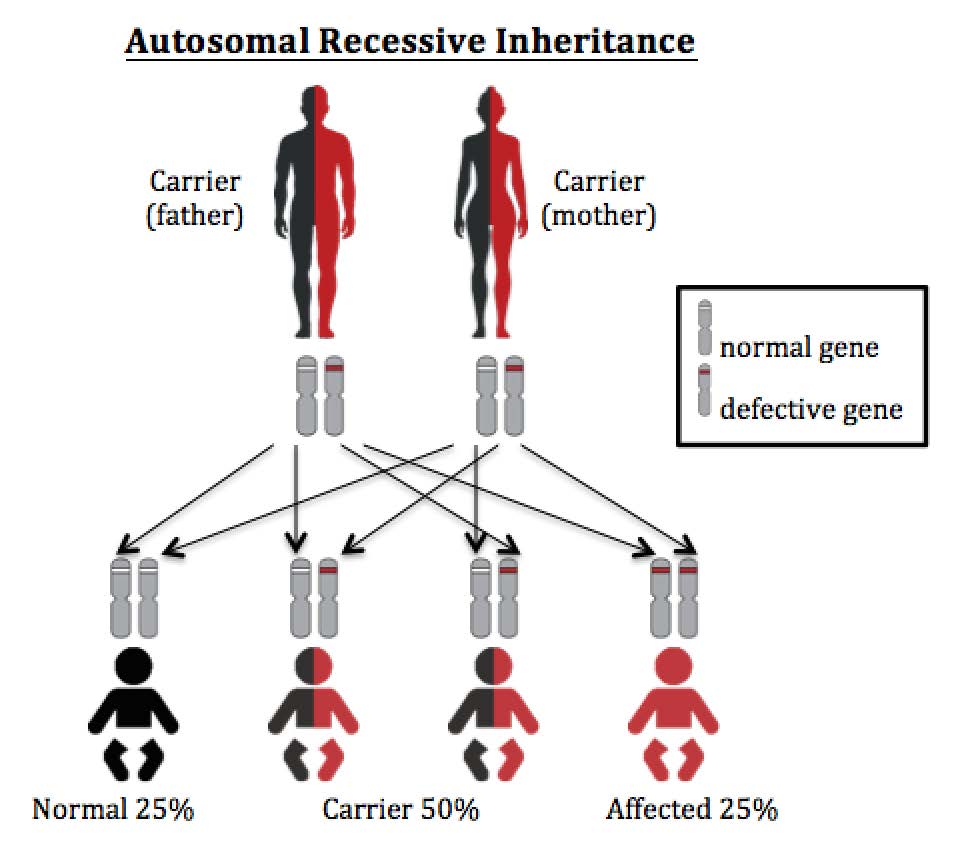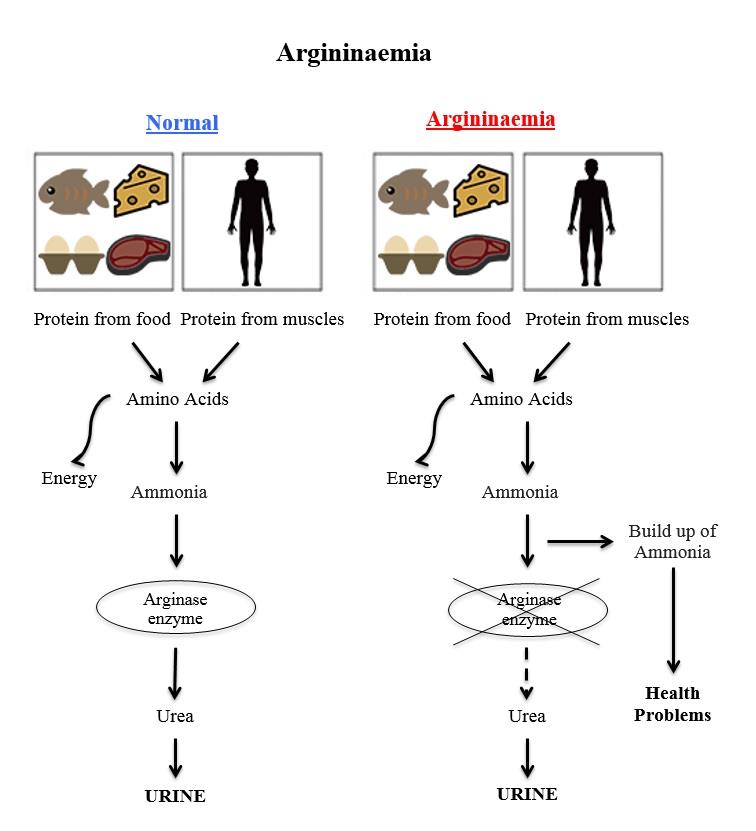
ARG is a rare but treatable amino acid disorder. People with amino acid disorders cannot process amino acids, the building blocks of protein.
Our body breaks down protein in food into amino acids when we eat, and breaks down protein in our muscle into amino acids during prolonged fasting and stress. Excessive amino acids are converted to a toxic waste product called ammonia. Ammonia has to be processed into urea to facilitate prompt excretion. This process is mediated by six special chemicals called enzymes, which form a chain of reactions called the urea cycle. The urea cycle is also responsible to process an amino acid called arginine.
Babies with ARG lack the specific enzyme called "arginase", one of the enzymes in the urea cycle, and have an ineffective urea cycle. As a result, toxic metabolites including ammonia build up in the body. If ammonia levels stays high for too long, severe brain damage can occur. If not treated, excess ammonia in blood can cause death.

The original graphic is converted into the following text version for your easy access to the information.
Argininaemia
Our body breaks down protein in food into amino acids when we eat, and breaks down protein in our muscle into amino acids during prolonged fasting and stress. Amino acids are broken down to produce energy for our body's use. Excessive amino acids are converted to ammonia which is toxic to the brain. When functioning normally, our body will produce Arginase enzyme to convert the ammonia into urea for excretion in urine. In people with Argininaemia, arginase enzyme is either missing or not working properly, making the ammonia cannot be processed properly. As a result, ammonia will build up in our body and cause serious health problems.
Everybody has two copies of genes, one from each parent, which tell the body how to make the specific enzymes.
ARG is an autosomal recessive disease. Only when babies inherit two faulty copies of the gene for ARG from parents, the enzyme made does not work properly or is not even made at all.

The original graphic is converted in to the following text version for your easy access to the information.
Autosomal recessive inheritance
In autosomal recessive diseases, people with two faulty copies of gene (one from father and one from mother) will develop symptoms. People with only one faulty copy of gene are normal and they are called disease carriers.
ARG is inherited in autosomal recessive manner. If both parents are ARG carriers, for each pregnancy (no matter it is a baby boy or girl), there is a 25% (1 in 4) chance that the child has 2 copies of normal gene (who is not affected), a 50% (1 in 2) chance that the child has one normal and one faulty gene who is a carrier like the parents, and a 25% (1 in 4) chance that the child has two copies of faulty gene who is at risk for ARG.
Babies with ARG are usually healthy at birth but they can develop metabolic crisis within the first few days of life due to the build-up of toxic substances in the body.
Metabolic crisis is a period of time when a metabolic disorder makes the baby seriously ill. Babies tend to develop metabolic crisis when they do not have food for long periods of time or when they have infection, fever or stomach upset. Left untreated, they can deteriorate with seizure and coma which can be life threatening.
If the right treatment is started early, babies with ARG are well and may have healthy and active lives.
Some children have very mild symptoms and do not develop symptoms of metabolic crisis until they are older. Some children still develop health problems including learning disability and poor growth, even if they have never had a metabolic crisis.
Babies with ARG can be treated with special low protein diet. It is important to feed regularly and not to go for long periods without eating. Medications may also be given.
Babies with ARG need to see their specialist metabolic team regularly even when they do not have symptom. It is important to discuss and design a possible plan with your doctor and dietician beforehand to let you know how to care for your baby during illness or other times when baby is not feeding well in order to prevent metabolic crisis.
If you are worried that your baby is ill, it is important to follow medical advice. Bring your baby to your local accident and emergency department immediately. Take the prescribed medication, special infant formula and any information that you have been given about ARG, including this pamphlet, to the hospital with you.
For general queries on Newborn Screening Programme for Inborn Errors of Metabolism, please call 5741 4280 (Department of Clinical Genetics, Hospital Authority)
July 2024
Hospital Authority